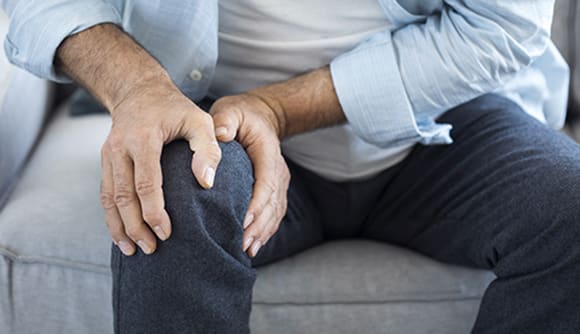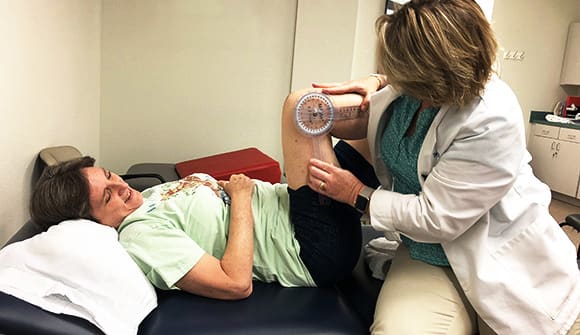Guided imagery helps wean patients from pain pumps
For those considering total knee and hip replacement, envisioning day of surgery proves beneficial
Article Author: Johnny Woodhouse
Article Date:

Total hip and knee replacements are two of the most commonly performed procedures in orthopedics, but they can also be among the most painful for patients.
In 2016, 60 patients took part in a six-month pilot study at Baptist Medical Center Beaches to ascertain the degree of impact biofeedback and guided imagery had on orthopedic patients who underwent joint replacement surgery.
The hip and knee patients were assigned to one of four groups, with three of the four receiving some form of preoperative intervention, such as guided imagery, biofeedback or both. The fourth group served as the control with those patients receiving the general standard of care provided to all patients, including education about their upcoming procedure. All four groups attended the hospital’s preoperative Joint Camp where their baseline measurements were collected and interventions and related tools were provided.
The guided imagery group received an MP3 player with a surgery-specific script which included key details of what the “day of surgery” would be like, allowing patients to mentally prepare for the procedure and were guided through a series of controlled breathing techniques to help trigger the relaxation response. The biofeedback group received a portable unit which measures heart rate variability and was trained on how to achieve a state of physiological coherence (heart-brain synchrony). The combined group used the first two techniques simultaneously as part of their preoperative intervention. Finally, the standard care control group received the same preoperative education as those in the intervention groups, plus a brief introduction to breathing techniques for pain management.
“What we found out was that by combining guided imagery and biofeedback, patients used less pain medication all the way around,” said Steven Lancaster, MD, an orthopedic surgeon with the Jacksonville Orthopaedic Institute. “This is something that all the anesthesiologists and surgeons are probably going to continue to use to try and get away from the big pain meds such as morphine that make the patients so groggy.
“Mind-body research has shown a direct correlation between heightened stress and compromised immune function,” said the study's principal researcher, Lisa E. Grossman, PhD, who has treated wounded soldiers and veterans transitioning back into the civilian world. “Guided imagery gives patients the opportunity to mentally rehearse what they are going to encounter the day of surgery, reducing the fear of the unknown.”
Added Dr. Lancaster, an orthopedic surgeon for more than 30 years: “A lot of people are more inclined these days to use less post-operative narcotics, and that kind of alternative complementary medicine fits right in with us. Those pain pumps are what we are trying to get away from.”
For information on joint replacement and orthopaedic conditions, visit Jacksonville Orthopaedic Institute.



